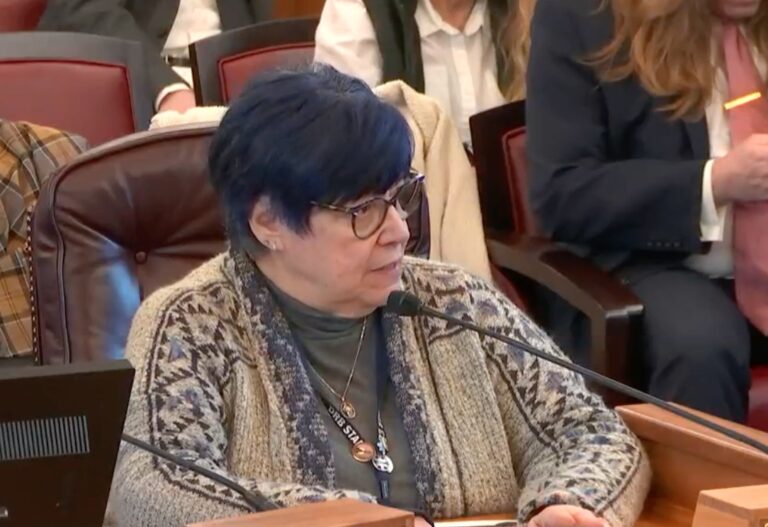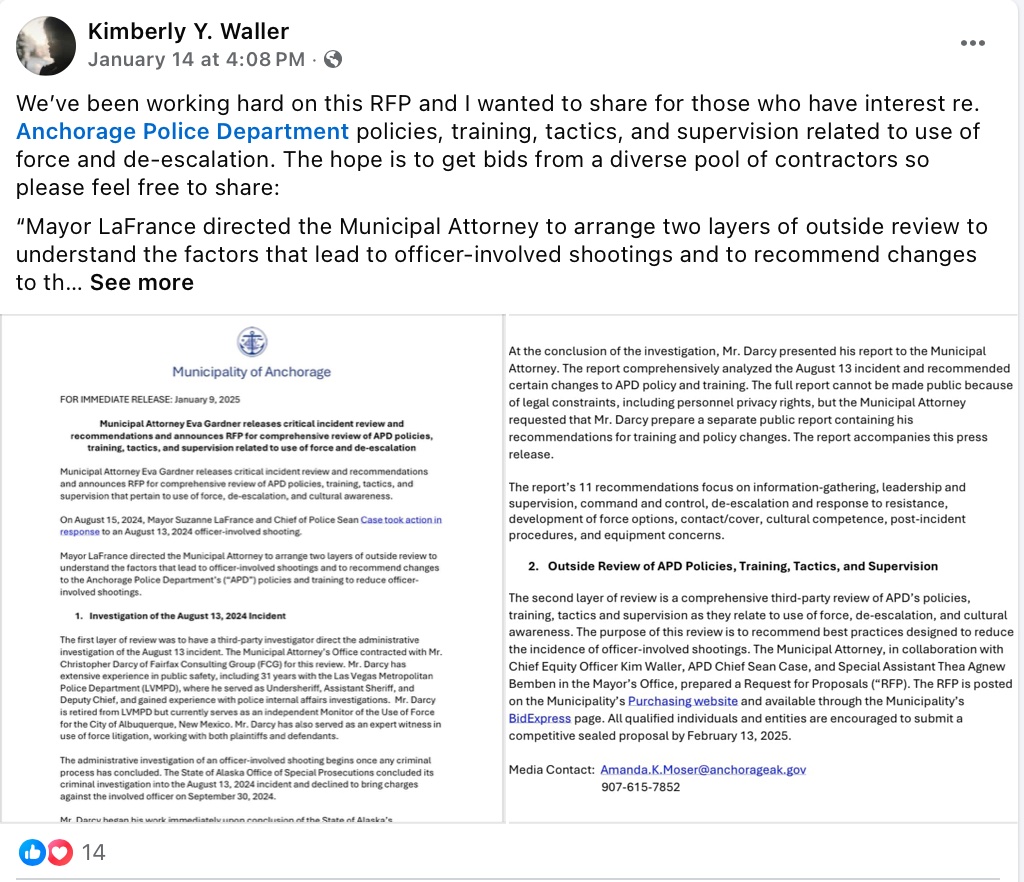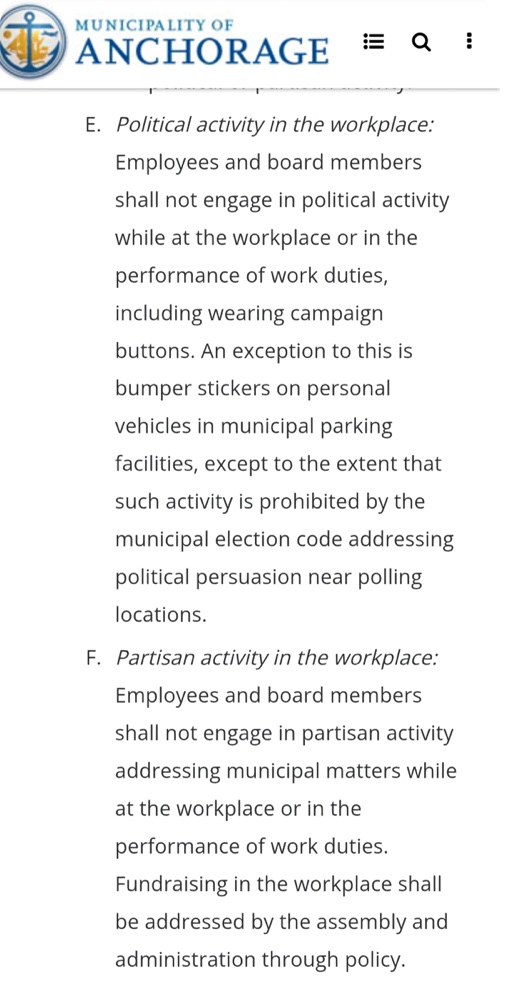The Alaska Legislature’s House Finance Committee held a hearing Wednesday to assess the funding status of the Public Employees’ Retirement System (PERS) and the Teachers’ Retirement System (TRS).
In particular, the portions of those systems that guarantee life-long payments to retirees and their designated survivors, called defined benefits, have a past-due debt, guaranteed to them by the Alaska Constitution and by contract law, of about $7.1 billion. That unfunded liability is of interest to lawmakers, fiscal conservatives, and everyday Alaskans who may, through future taxes, have to support every public employment retiree for 30 years or more in their retirement years.
The return to defined benefits for government workers is a priority for the Democrats who control both the House and Senate this session, although the bill at play is being sponsored by cross-over Republican Sen. Cathy Giessel.
You can view the House Finance Committee discussion at this link.
View the presentation slides at this link.
In years when those trust funds, as managed by the Alaska Treasury, earn better than 7.25% that state debt amount is reduced, but the converse is also true.
While municipalities, school districts, and independent government agencies share portions of that liability, the deep pocket is the State of Alaska. Lawmakers discussed long-term financial commitments, funding challenges, and policy considerations surrounding state employee retirement systems. Committee members raised questions about Alaska’s unique financial landscape.
One key point of discussion was how Alaska compares to other states in terms of taxation and economic structure.
A few other states have even larger past-due public employee retirement liabilities (meaning the 2025 discounted value of future payments owed to those who have retired or will one day retire) but the Alaska defined benefits plans have been closed to new employees for almost 20 years, and that may be unique to Alaska. New legislators are especially surprised that an obligation closed to new entrants that long ago could today amount to almost 10% percent of the Permanent Fund corpus.
It’s possible that had the state not closed these plans 19 years ago, the past-due amount could be 30% or more of the Permanent Fund corpus. (Alaskans can thank Sen. Bert Stedman and the late Sen. Lyda Green that the liability is no larger than it is.) The defined contribution plans, which replaced the defined benefits plans, accumulate no unpaid liabilities, and that was the chief reason the Alaska Legislature made that change nearly 20 years ago.
Notably, Alaska and New Hampshire are the only two states without a state sales tax or a state income tax. However, unlike New Hampshire, which has long relied on a lean government, Alaska faces economic challenges due to the huge size of state and
municipal government and the dramatic decline in oil production.
Back when Alaska first faced the prospect of North Slope production one day falling off, there was a wide-spread belief that by today Alaska would have a thriving barley farming and dairy industry, a plastics industry, a forest products industry even larger than existed back then, water exports to California and Arizona, a rail connection to the rest of North America, and a variety of basic industry as can be found in other states. None of that has occurred; the only diversification of the economy is the growth of the nonprofit sector, which transfers money from U.S. taxpayers to perform various functions, some useful, some not.
The hearing also revisited the 2014 decision to allocate $3 billion from state funds to PERS and TRS trust funds, a move that benefited over 100 employers in the state.
State Dependence and Municipal Funding
One issue underlying the discussion was the extent to which Alaska’s municipalities depend on the state government for essential services, including K-12 education and law enforcement. Many towns and villages assess no property tax.
Because of this reliance on state revenues for local services, retirement costs for municipal employees ultimately fall to the state’s General Fund. Lawmakers noted that some hiring and employment decisions made by local governments create
financial obligations that the state must address.
The hearing highlighted concerns about public employers making decisions that affect the overall PERS and TRS systems. One example sometimes discussed in committees is the sale of a large municipal utility to the private sector while retaining PERS liabilities, which may have increased the sale price but also contributed to the state’s unfunded pension obligations. The discussion underscored the challenges of ensuring fiscal accountability when retirement liabilities are shifted to the state level.
The Impact of Federal Legislation
A major recent development that was not widely addressed during the hearing was Congress’ approval of H.R. 82, the Social Security Fairness Act.
This legislation eliminates the reduction in Social Security benefits that previously affected many Alaska public employees. One Alaskan who testified noted that after 19 years of state employment, his Social Security benefits were reduced by two-
thirds.
However, with the passage of H.R. 82, those reductions will be restored (retro-active to the beginning of 2024), providing a significant benefit to defined contribution plan members. With these Social Security protections in place, some fiscal conservatives believe that discussions about reintroducing a defined benefit program may no longer be necessary. Alaska’s defined contribution retirement plan is demonstrably generous compared to Alaska private-sector plans, and the restoration of full Social Security benefits further strengthens public employees’ retirement security. Thanks in no small part to our delegation to Congress, Social Security now becomes a full defined benefit plan for public employees.
Unfunded liabilities and fiscal prudence
The hearing also revisited the 2014 decision to allocate $3 billion from state funds to PERS and TRS trust funds, a move that benefited over 100 employers.
Some committee members have apparent concerns that such a long-standing financial burden remains unresolved, particularly given the decline in oil production and the lack of significant economic diversification in Alaska. Some questioned whether such financial interventions should continue in the future, given the state’s uncertain revenue outlook. As of this writing there are bills in the Alaska Senate which would restart the defined benefits plans for PERS and TRS, but as of now there are no such bills in the
House.
Must Read Alaska’s fiscally conservative readers expect Sen. Bert Stedman will attempt to explain to his colleagues why a return to these expensive and still unfunded plans is a risky idea for Alaska.












